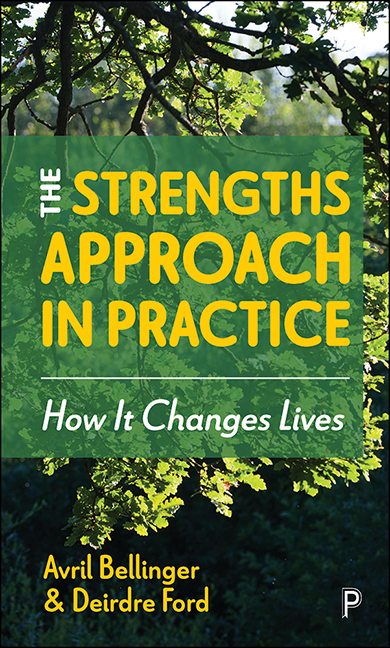Book contents
- Frontmatter
- Dedication
- Contents
- List of figures, tables and boxes
- About the authors
- Acknowledgements
- Preface
- Introduction: The strengths approach in a global emergency
- 1 A strengths approach to human need
- 2 A strengths approach to law and policy
- 3 A strengths approach to organisational development
- 4 A strengths approach to governance and management
- 5 A strengths approach to funding an NGO
- 6 A strengths approach to research
- 7 A strengths approach to student learning
- 8 A strengths approach to growing community
- 9 The strengths approach in practice: how it changes lives
- References
- Index
6 - A strengths approach to research
Published online by Cambridge University Press: 15 September 2022
- Frontmatter
- Dedication
- Contents
- List of figures, tables and boxes
- About the authors
- Acknowledgements
- Preface
- Introduction: The strengths approach in a global emergency
- 1 A strengths approach to human need
- 2 A strengths approach to law and policy
- 3 A strengths approach to organisational development
- 4 A strengths approach to governance and management
- 5 A strengths approach to funding an NGO
- 6 A strengths approach to research
- 7 A strengths approach to student learning
- 8 A strengths approach to growing community
- 9 The strengths approach in practice: how it changes lives
- References
- Index
Summary
Introduction
Research and practice are inseparable in that each necessarily informs the other. This chapter begins with an exploration of the nature of research and its relationship to practice, illustrated with examples from START. It then focuses specifically on research with refugees, together with the debates and ethical challenges that working with this particular group brings into sharp relief. Undoubtedly these issues are transferable to other groups. Arguably, no one form of research is better than another – or indeed capable of ‘telling the truth’. In seeking to ‘tell a truth’ as well as we are able, we acknowledge that all research is itself an intervention. In respect of people who are refugees we have an urgent obligation to ensure that the research process is one that contributes positively to their situations.
A substantial part of this chapter will focus, therefore, on appreciative inquiry as a strengths approach to research. It will introduce the process for those unfamiliar with it and report on work supported by Avril and conducted at START by Kim Embra for her doctoral thesis while studying as a clinical psychology student at Plymouth University.
It concludes with reference to good practice guidance (Temple and Moran, 2011) and the value of a strengths approach lens for judging a research approach.
Research and practice
We cannot do justice to the wealth of scholarship about research that exposes the fallacy of objectivity, the inevitability of context and researcher perspective, and the illusion of binary simplicity (Butler et al, 2007). Traditionally research is judged according to its reliability and validity: features that can be tested by repeating the research in different circumstances and achieving a consistent result. In social sciences (and more mainstream science) these positivist ideas have been challenged and ideas of what constitutes good research extended (May, 1993; Jones, 2012). Jan Fook (2001) argues that there is no one authentic research methodology. She states that all stages of research are complex and interpretive (and therefore biased). These include the selection of the question, methodology and analysis. In her view, authenticity is supported through reflexivity and honesty rather than through a careful adherence to rules. She exposes the inadequacy of binary positions and reflects on the positivist nature of some qualitative research, for example.
- Type
- Chapter
- Information
- The Strengths Approach in PracticeHow It Changes Lives, pp. 122 - 145Publisher: Bristol University PressPrint publication year: 2022



